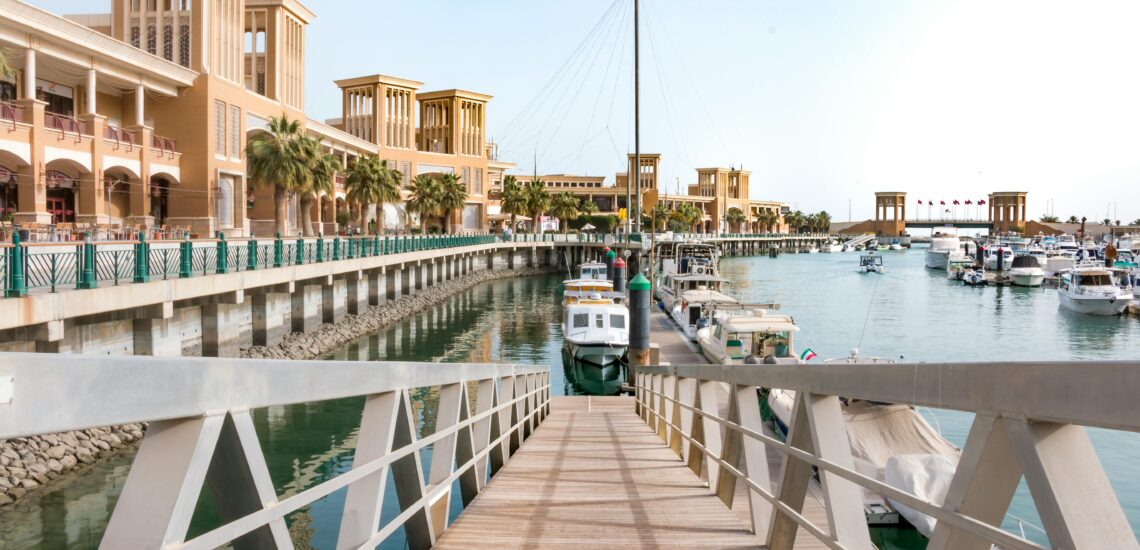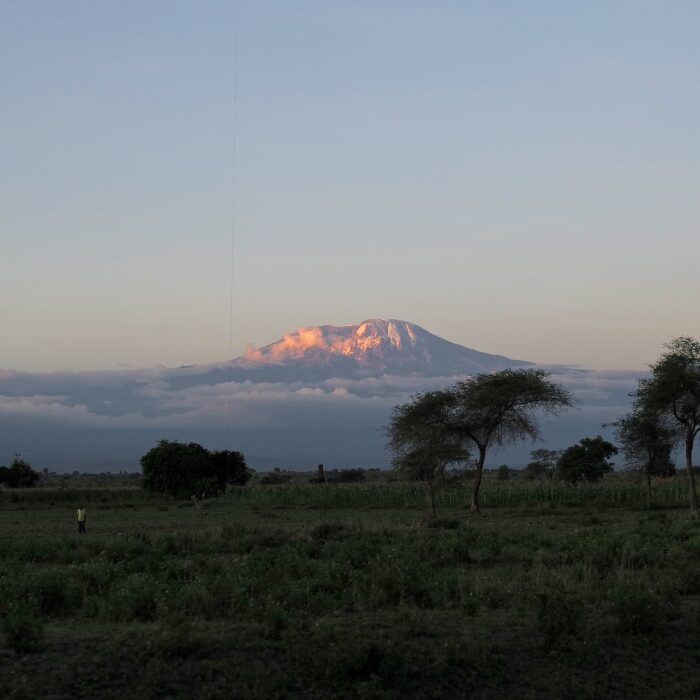Короткі факти про Кувейт:
- Населення: приблизно 4,3 млн осіб.
- Столиця: місто Кувейт.
- Офіційна мова: арабська.
- Валюта: кувейтський динар (KWD).
- Уряд: унітарна конституційна монархія.
- Основна релігія: іслам, переважно суніти, зі значною меншістю шиїтів.
- Географія: розташована на Близькому Сході, межує з Іраком на півночі та заході, Саудівською Аравією на півдні та Перською затокою на сході.
Факт 1: назва країни Кувейт походить від арабського слова, що означає форт
Назва країни Кувейт походить від арабського слова «kūt», що означає «фортеця». Зменшувальна форма «Кувейт» по суті перекладається як «невеликий форт». Ця етимологія відображає історичне значення країни та стратегічне розташування вздовж Перської затоки.
Історія Кувейту як укріпленого поселення сягає 17 століття, коли він був заснований як невеликий торговий пункт і рибальське село. Наявність фортів і укріплених споруд була вирішальною для захисту від рейдерів та інших зовнішніх загроз. Згодом Кувейт перетворився на важливий морський і торговий центр, завдяки своєму стратегічному положенню на перехресті основних торгових шляхів.
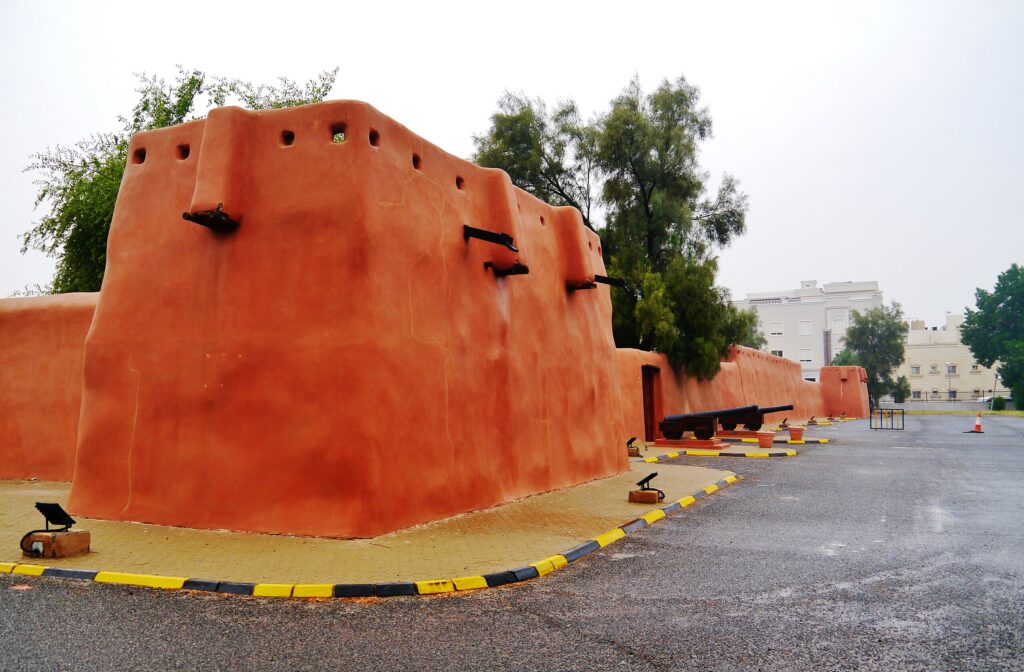
Факт 2: Більше 2/3 населення Кувейту складають іноземці
Більше двох третин населення Кувейту становлять іноземці, що робить його однією з країн з найбільшою часткою емігрантів у світі. За останніми оцінками, експатріанти складають близько 70% від загального населення Кувейту.
Таке значне іноземне населення пов’язано насамперед із сильною економікою Кувейту, яка обумовлена його величезними запасами нафти. Нафтова промисловість разом з іншими секторами, як-от будівництво, охорона здоров’я та побутові послуги, приваблює велику кількість іноземних працівників з різних країн, включаючи Індію, Єгипет, Бангладеш, Філіппіни та Пакистан тощо. Ці експатріанти приїжджають до Кувейту в пошуках кращих можливостей роботи та вищої заробітної плати, ніж у їхніх рідних країнах.
Факт 3: у майбутньому Кувейт будує найвищу будівлю у світі
Цей проект, відомий як Burj Mubarak Al-Kabir, є частиною більшого розвитку Madinat al-Hareer (Шовкове місто), масштабного міського проекту, спрямованого на перетворення північної частини країни на великий економічний і комерційний центр.
Бурдж Мубарак Аль-Кабір
Запропонований Бурдж Мубарак Аль-Кабір спроектований таким чином, щоб досягти приголомшливої висоти в 1001 метр (3284 фути), що значно перевищує нинішню найвищу будівлю, Бурдж Халіфа в Дубаї, яка становить 828 метрів (2717 футів). Дизайн Burj Mubarak Al-Kabir черпає натхнення з традиційної ісламської архітектури, її сегментована конструкція призначена для того, щоб протистояти сильним вітрам і сейсмічній активності, які можуть вплинути на такі високі споруди.
Мадінат аль-Харір (Шовкове місто)
Мадінат аль-Харір, або Шовкове місто, — це амбітний міський проект, що займає площу 250 квадратних кілометрів (96,5 квадратних миль). У місті планується створити житлові масиви, ділові райони, природний заповідник, різноманітні культурно-розважальні заклади. Він спрямований на диверсифікацію економіки Кувейту шляхом залучення інвестицій, туризму та міжнародного бізнесу, зменшуючи залежність країни від нафтових доходів.
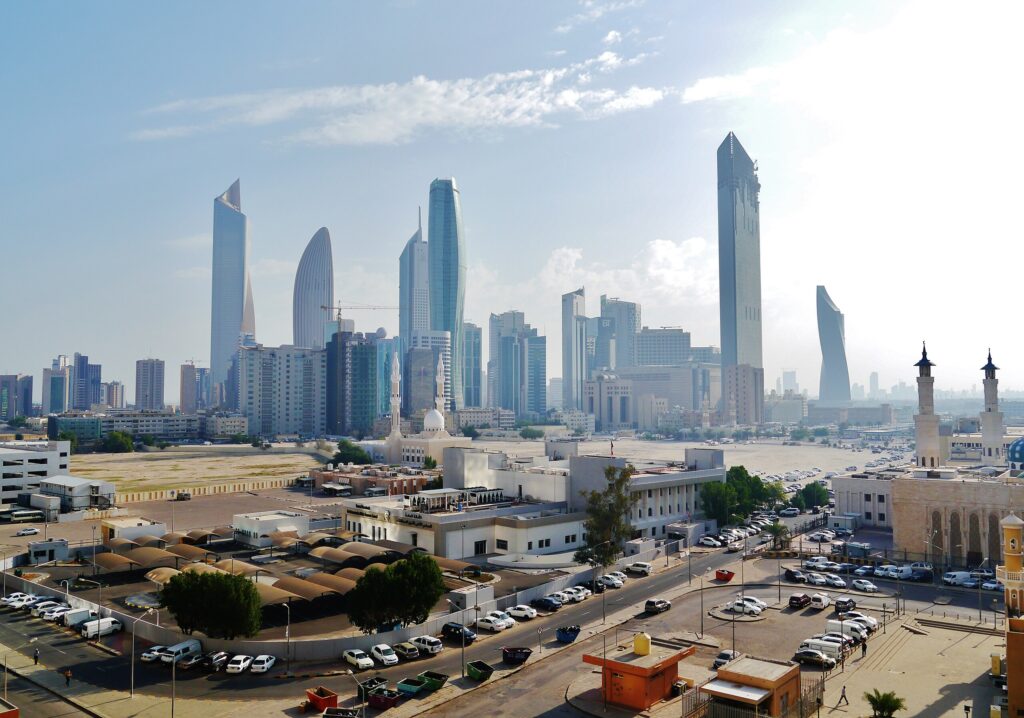
Факт 4: Кувейт є пустельною країною, де майже немає природних джерел прісної води
Кувейт є пустельною країною, де майже немає природних джерел прісної води, характеризується посушливим кліматом і мінімальною річною кількістю опадів, у середньому лише близько 110 міліметрів (4,3 дюйма). Суворі екологічні умови історично створювали значні проблеми для водопостачання.
Щоб вирішити цю проблему, Кувейт значною мірою покладається на опріснення, процес, який видаляє сіль та інші домішки з морської води. Країна була піонером у застосуванні широкомасштабного опріснення в 1950-х роках, і сьогодні опріснювальні заводи, такі як Шувайк, Шуайба та Доха, забезпечують більшість питної води в Кувейті. Цей спосіб є енергоємним і дорогим, але необхідний для задоволення потреб населення і промисловості у воді.
На додаток до опріснення, Кувейт використовує обмежені ресурси підземних вод і очищені стічні води для сільськогосподарських і промислових цілей. Грунтові води, часто солонуваті, потребують очищення, тоді як очищені стічні води допомагають зберігати прісну воду.
Факт 5: У Кувейті немає залізниць
Кувейт не має залізниць, що робить його однією з небагатьох країн без залізничної мережі. Відсутність залізничної інфраструктури означає, що транспортні перевезення всередині країни значною мірою покладаються на дорожню мережу та авіацію.
Автомобільний транспорт
Автомобільний транспорт є основним видом транспорту в Кувейті. Країна має розгалужену та добре облаштовану мережу магістралей і доріг, які з’єднують великі міста, селища та промислові райони. Варіанти громадського транспорту включають автобуси та таксі, але кількість приватних автомобілів дуже висока, що сприяє значному дорожньому руху, особливо в таких містах, як Кувейт.
Примітка. Якщо ви плануєте подорожувати цією країною, перевірте, чи потрібен вам міжнародний водійський дозвіл у Кувейті, щоб орендувати та керувати автомобілем.
Авіація
Для міжнародних подорожей Кувейт покладається на повітряний транспорт. Міжнародний аеропорт Кувейту служить головним шлюзом для пасажирів і вантажів, з’єднуючи країну з різними напрямками по всьому світу. Національний перевізник Kuwait Airways та інші міжнародні авіалінії здійснюють рейси з цього центру, полегшуючи подорожі та комерцію.
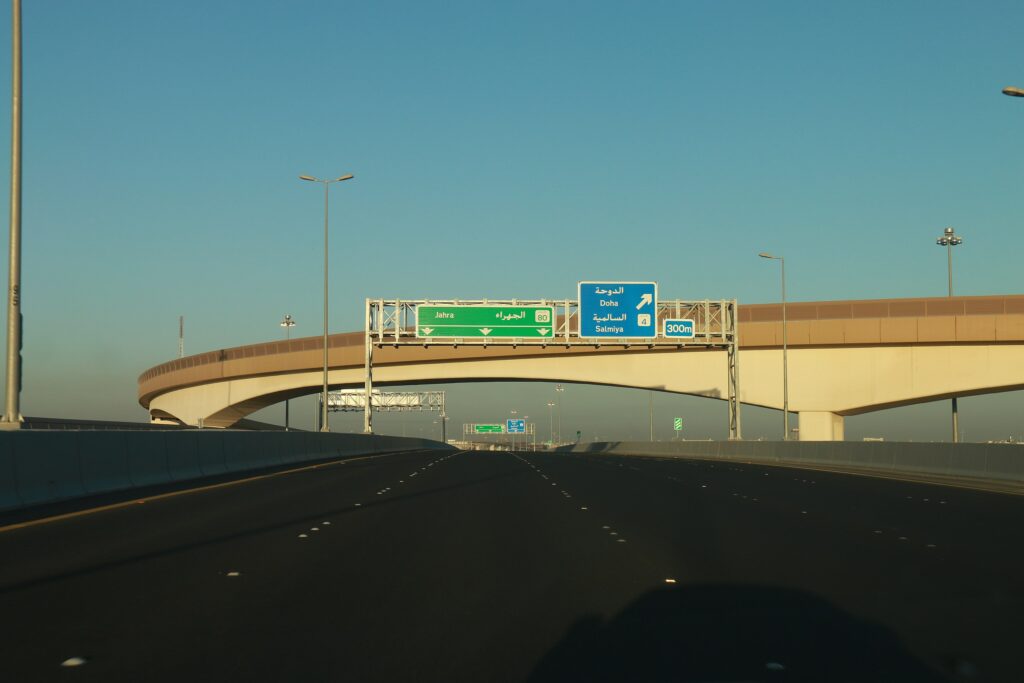
Факт 6: Кувейт має сухопутний кордон лише з 2 країнами
Кувейт має сухопутний кордон лише з двома країнами: Іраком і Саудівською Аравією.
Кордон з Іраком
Кувейт має спільний північний кордон з Іраком, який історично був предметом суперечок. Найпомітнішим конфліктом, що виник через цей кордон, було вторгнення Іраку в Кувейт у 1990 році, що призвело до війни в Перській затоці. Кордон пролягає приблизно 240 кілометрів (150 миль), і в післявоєнний період докладалися зусилля для посилення безпеки та стабільності.
Кордон із Саудівською Аравією
На півдні Кувейт має довший кордон із Саудівською Аравією, що тягнеться приблизно на 222 кілометри (138 миль). Цей кордон, як правило, є мирним і сприяє співпраці, оскільки обидві країни мають культурні та економічні зв’язки як члени Ради співробітництва Перської затоки (GCC). Кордон сприяє значній торгівлі та пересуванням між двома націями.
Факт 7: Сокіл є дуже важливим птахом для Кувейту
Сокіл займає особливе місце в культурі та історії Кувейту. Він символізує глибоко вкорінені традиції нації та зв’язок із пустельним середовищем. Протягом багатьох поколінь соколине полювання було улюбленою практикою серед кувейтців, демонструючи навички полювання та зміцнюючи міцний зв’язок між сокольниками та їхніми птахами.
У Кувейті соколів цінують не лише за їхню мисливську майстерність, але й за їх красу та грацію. Вони представляють стійкість і здатність до адаптації в суворих пустельних ландшафтах, де вони історично відігравали вирішальну роль у полюванні на їжу.
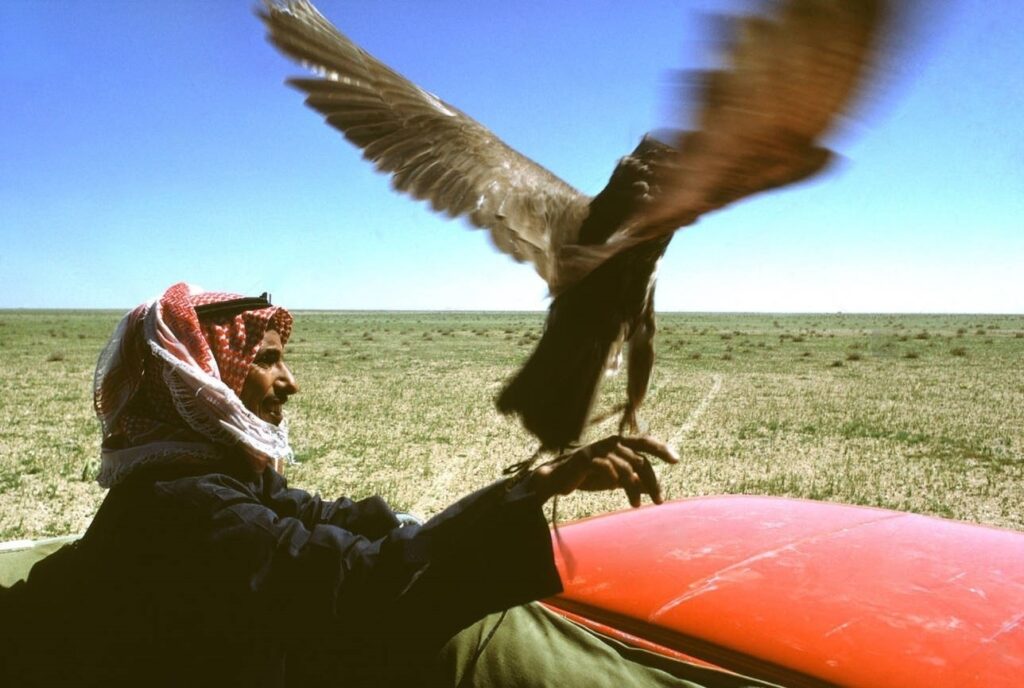
Факт 8: Верблюжі перегони популярні в Кувейті
Перегони на верблюдах – це велика справа в Кувейті, яка насичена традиціями та культурою, що тягнеться з покоління в покоління. Це не просто спорт; це свято спадщини пустелі Кувейту та глибокого зв’язку між людьми та цими стійкими тваринами.
У Кувейті верблюжі перегони є жвавими подіями, які приваблюють натовпи, які прагнуть побачити швидкість і спритність цих чудових створінь. Перегони відбуваються на сучасних трасах, оснащених передовими технологіями, які поєднують старі традиції з новими досягненнями, щоб забезпечити чесні та захоплюючі змагання.
Цей вид спорту — це не лише розвага — це відображення історії Кувейту та важливої ролі, яку верблюди відіграють у повсякденному житті. Від транспорту до торгівлі верблюди були незамінними для пересування суворою пустельною місцевістю.
Факт 9: найпопулярнішою пам’яткою Кувейту є Кувейтські вежі
Найбільш знаковою пам’яткою Кувейту є Кувейтські водонапірні вежі. Ці височенні споруди є не тільки пам’ятками, а й багатофункціональними об’єктами. Кувейт – одна з небагатьох країн світу, яка не внесена до списку Всесвітньої спадщини ЮНЕСКО, хоча на території країни були знайдені стародавні свідчення інших цивілізацій.
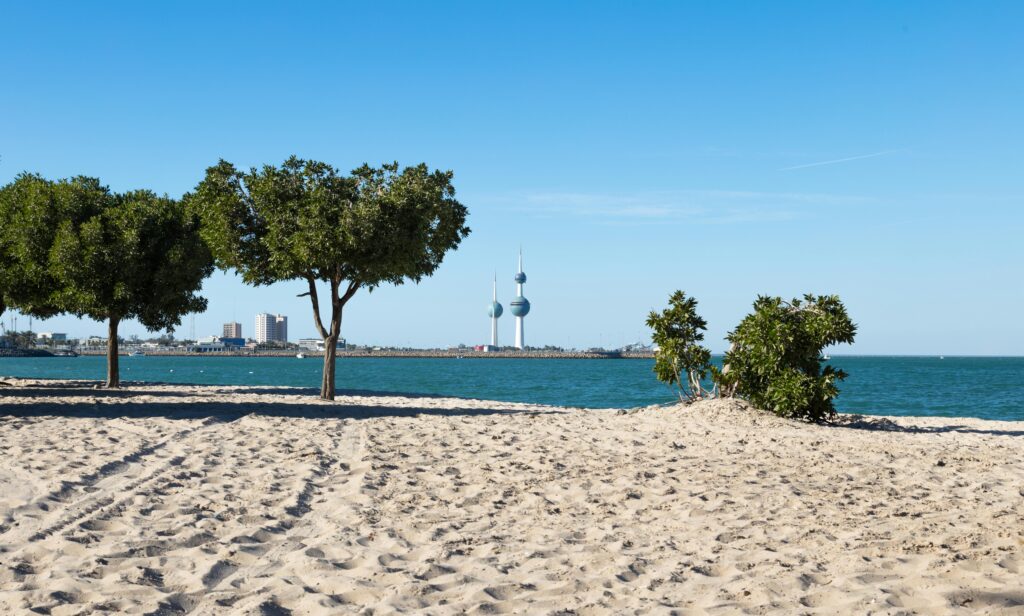
Факт 10: жителі Кувейту статистично страждають на ожиріння в більшості
Кувейт бореться з високою поширеністю ожиріння серед свого населення, і статистика висвітлює серйозні проблеми. Згідно з останніми даними, понад 70% дорослих жителів Кувейту класифікуються як люди з надмірною вагою або ожирінням. Ця тривожна цифра підкреслює серйозність проблеми, на яку впливають такі фактори, як зміна режиму харчування, перехід до сидячого способу життя та генетична схильність. Уряд та органи охорони здоров’я в Кувейті активно просувають інформаційні кампанії та впроваджують ініціативи для заохочення здорового способу життя та боротьби зі зростанням рівня проблем зі здоров’ям, пов’язаних із ожирінням, у країні.

Опубліковано Липень 12, 2024 • 7хв на читання

